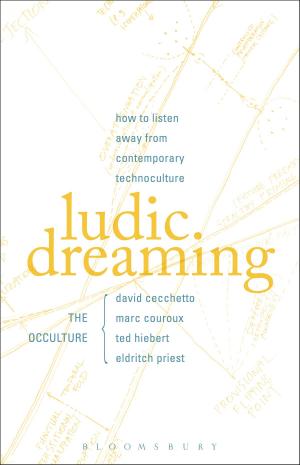Jacques Ranciere: An Introduction
Nonfiction, Religion & Spirituality, Philosophy, Aesthetics, Modern, Political| Author: | Professor Joseph J. Tanke | ISBN: | 9781441135049 |
| Publisher: | Bloomsbury Publishing | Publication: | April 28, 2011 |
| Imprint: | Continuum | Language: | English |
| Author: | Professor Joseph J. Tanke |
| ISBN: | 9781441135049 |
| Publisher: | Bloomsbury Publishing |
| Publication: | April 28, 2011 |
| Imprint: | Continuum |
| Language: | English |
Jacques Rancière: An Introduction offers the first comprehensive introduction to the thought of one of today's most important and influential theorists. Joseph Tanke situates Rancière's distinctive approach against the backdrop of Continental philosophy and extends his insights into current discussions of art and politics. Tanke explains how Rancière's ideas allow us to understand art as having a deeper social role than is customarily assigned to it, as well as how political opposition can be revitalized. The book presents Rancière's body of work as a coherent whole, tracing key notions such as the distribution of the sensible, the aesthetics of politics, and the supposition of equality from his earliest writings through to his most recent interventions. Tanke concludes with a series of critical questions for Rancière's work, indicating how contemporary thought might proceed after its encounter with him. Â
The book provides readers new to Rancière with a clear overview of his enormous intellectual output. Engaging with many un-translated and unpublished sources, the book will also be of interest to Rancière's long-time readers.Â
Jacques Rancière: An Introduction offers the first comprehensive introduction to the thought of one of today's most important and influential theorists. Joseph Tanke situates Rancière's distinctive approach against the backdrop of Continental philosophy and extends his insights into current discussions of art and politics. Tanke explains how Rancière's ideas allow us to understand art as having a deeper social role than is customarily assigned to it, as well as how political opposition can be revitalized. The book presents Rancière's body of work as a coherent whole, tracing key notions such as the distribution of the sensible, the aesthetics of politics, and the supposition of equality from his earliest writings through to his most recent interventions. Tanke concludes with a series of critical questions for Rancière's work, indicating how contemporary thought might proceed after its encounter with him. Â
The book provides readers new to Rancière with a clear overview of his enormous intellectual output. Engaging with many un-translated and unpublished sources, the book will also be of interest to Rancière's long-time readers.Â















